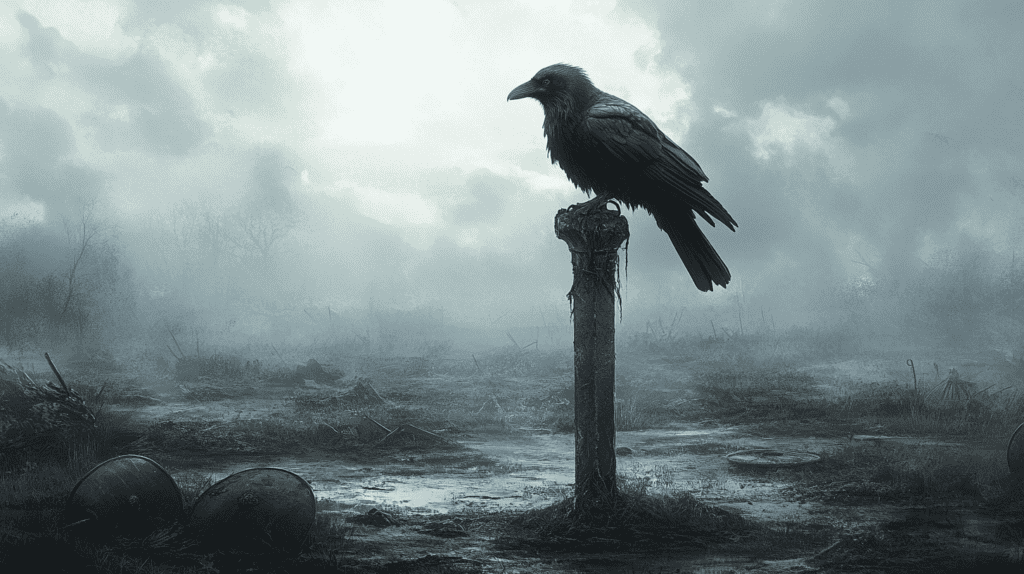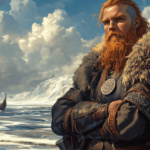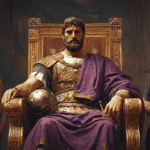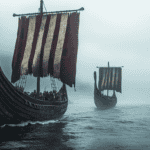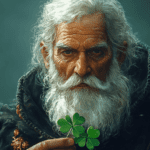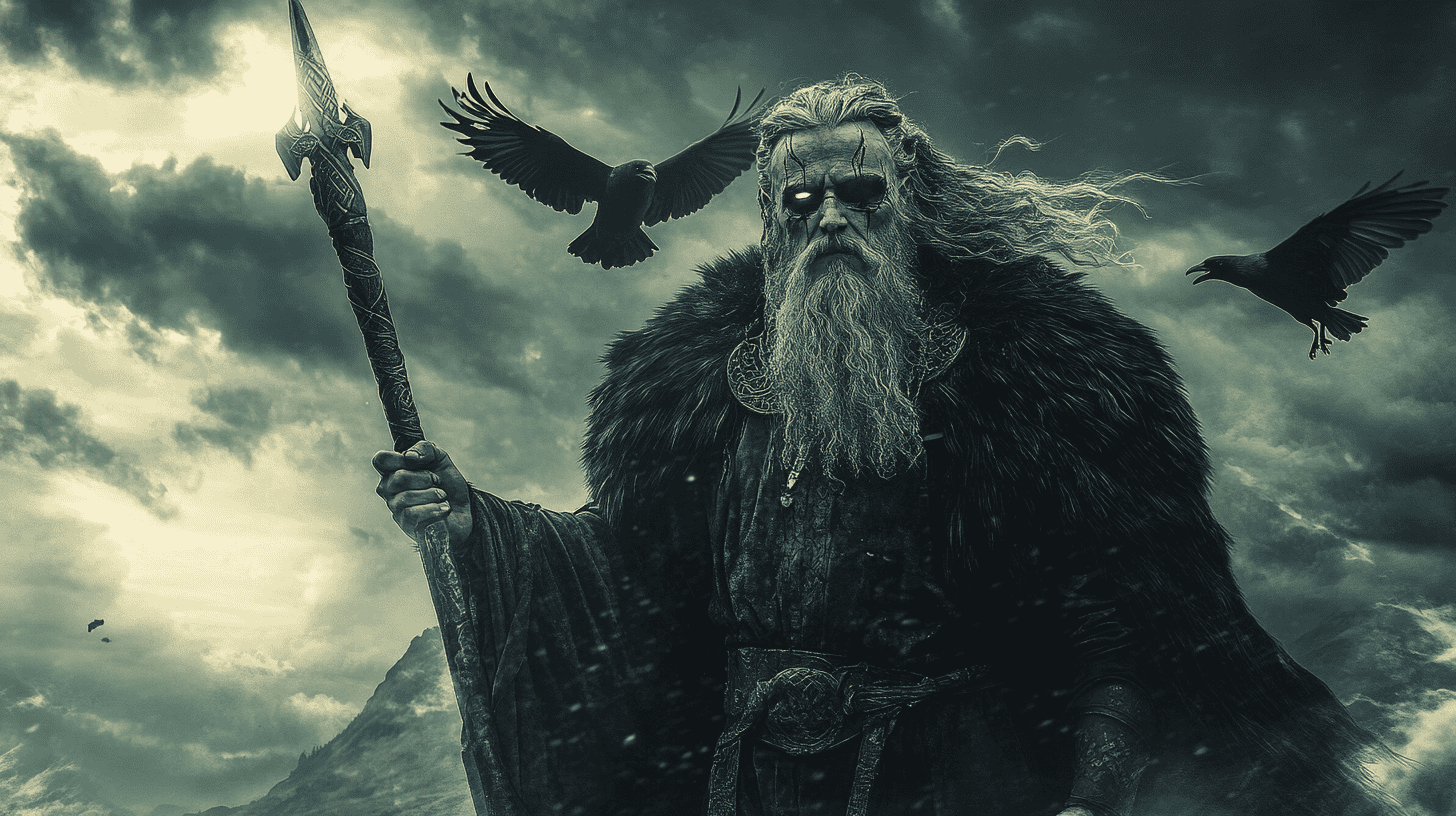
In the mist-shrouded realms of Norse mythology, few figures loom as large as Odin, the Allfather of the gods. His presence permeates the ancient sagas, shaping the destiny of gods and mortals alike with the cunning of a master strategist and the wisdom of ages.
Odin’s origins are as complex and multifaceted as the god himself. Born of the primordial giants Bor and Bestla, Odin emerged into a chaotic universe alongside his brothers Vili and Vé. Together, these three gods would shape the world from the body of the slain giant Ymir, crafting the heavens from his skull and the earth from his flesh. This act of cosmic violence set the tone for Odin’s reign – a rule marked by both creation and destruction, wisdom and war.
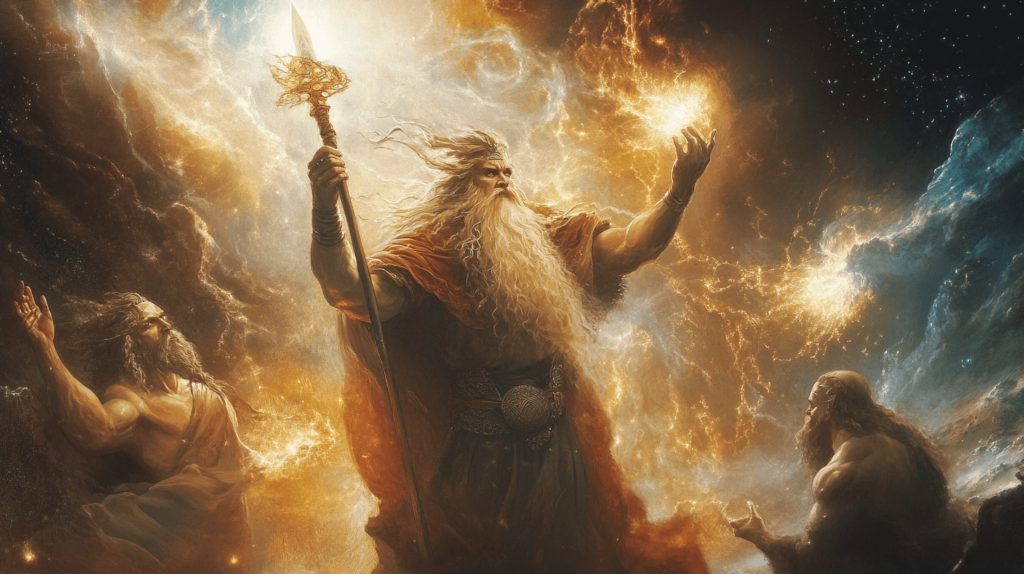
The Wanderer and the War-God
Odin’s dual nature as both a seeker of wisdom and a bringer of war is reflected in his many names and guises. As the Wanderer, he roams the worlds in disguise, testing the hospitality of mortals and gathering intelligence on the forces that threaten Asgard. This aspect of Odin resonates with the Norse value of cunning, reminding us that knowledge is often a more potent weapon than the sharpest sword.
Yet Odin is also the god of war, presiding over the slain in his great hall of Valhalla. Here, the einherjar – warriors who have fallen in glorious battle – feast and fight, preparing for the final conflict of Ragnarök. Odin’s selection of the slain, carried out by his valkyries, underscores the Norse belief in an honorable death as the path to immortality.
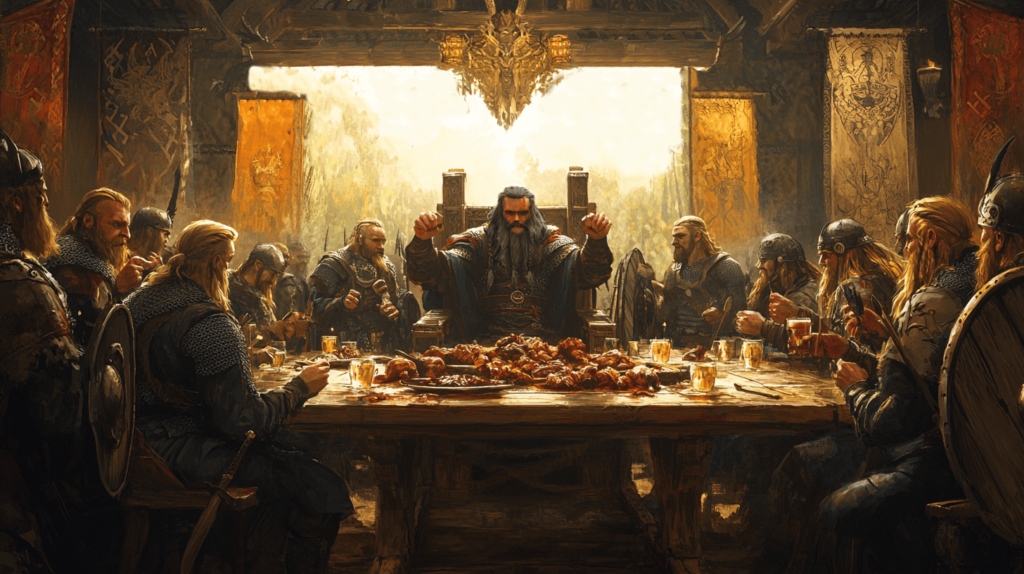
The Pursuit of Knowledge
Odin’s quest for wisdom borders on obsession, driving him to extreme acts of self-sacrifice. The loss of his eye is but one example. Another is his ordeal on the World Tree, Yggdrasil, where he hung for nine days and nights, wounded by his own spear, to gain the knowledge of the runes. This shamanic ritual, reminiscent of the ordeals faced by mystics and prophets across cultures, speaks to the Norse understanding of wisdom as something that must be earned through suffering.
The god’s arsenal of magical items further enhances his powers of perception. His ravens, Huginn (Thought) and Muninn (Memory), fly across the worlds each day, bringing back news to their master. His eight-legged steed, Sleipnir, allows him to traverse the boundaries between realms with ease. And his spear, Gungnir, never misses its mark, symbolizing the inevitability of fate once Odin has decreed it.
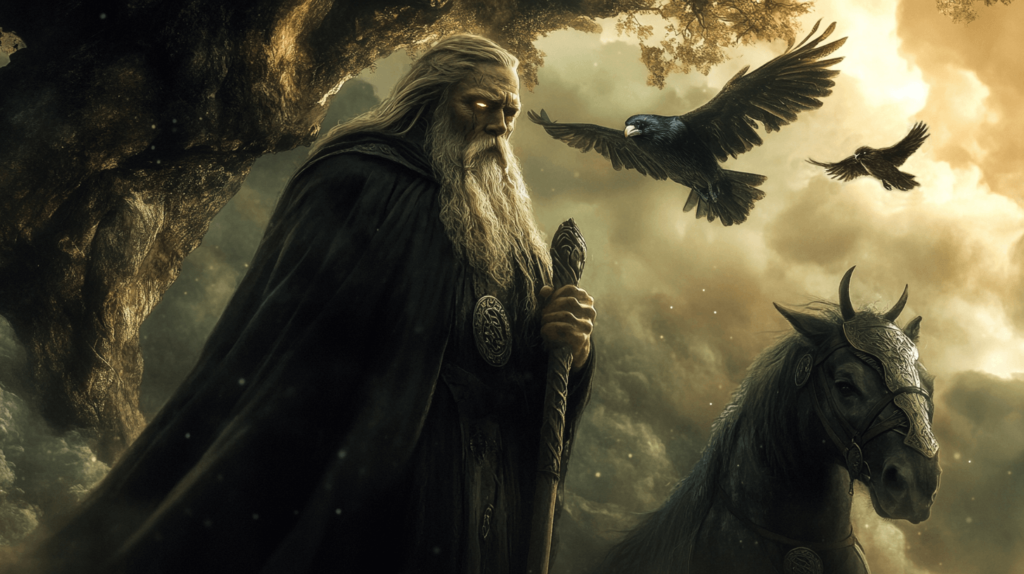
The Shadow of Ragnarök
Despite his vast power and knowledge, Odin is haunted by the prophecy of Ragnarök, the twilight of the gods. This fated battle, in which Odin will fall to the monstrous wolf Fenrir, casts a long shadow over his actions. Like a chess master playing against an opponent he knows will eventually checkmate him, Odin maneuvers his forces with grim determination.
The god’s preparations for this final conflict are both ingenious and desperate. He gathers the greatest warriors to his hall, knowing that even their combined might will not be enough to avert disaster. He seeks out giants and other beings of power, bargaining and sometimes betraying to gain any advantage. In this, we see the complexity of Odin’s character – a god willing to sacrifice honor for the sake of a greater goal.
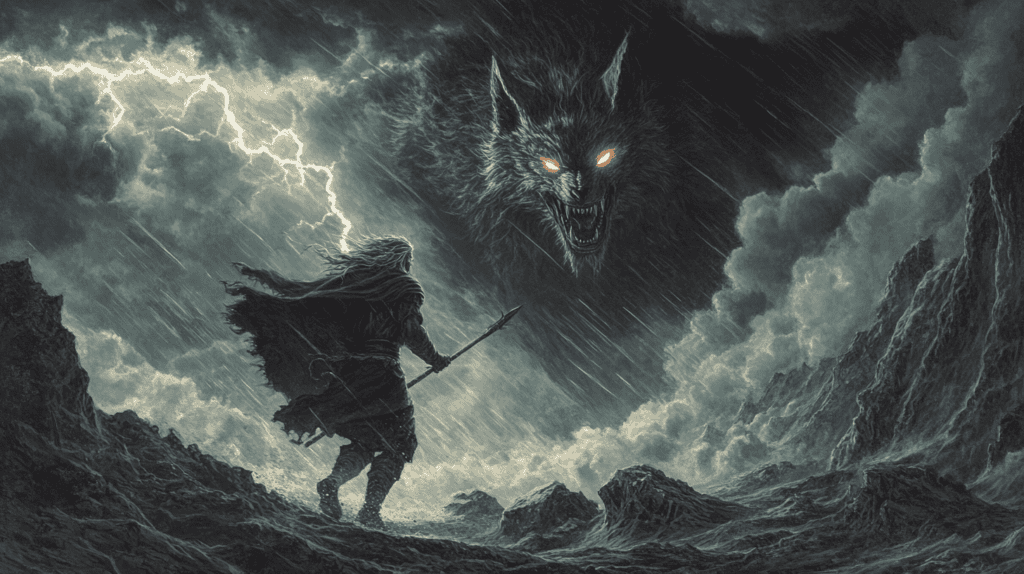
Odin and the Human Realm
Odin’s influence extends far beyond the divine sphere, reaching deep into the human world. Kings and warriors sought his favor, often dedicating their victories to him in hopes of earning a place in Valhalla. The practice of hanging captives from trees as sacrifices to Odin speaks to the darker aspects of his worship, a reminder that the god of wisdom is also the god of the gallows.
Yet Odin’s relationship with humanity is not solely one of domination. As the god of poetry and inspiration, he bestows the gift of creative ecstasy upon mortals. The mead of poetry, stolen by Odin in the form of an eagle, becomes a metaphor for the divine origin of artistic inspiration. In this role, Odin bridges the gap between the mundane and the sublime, offering mortals a taste of godlike perception.
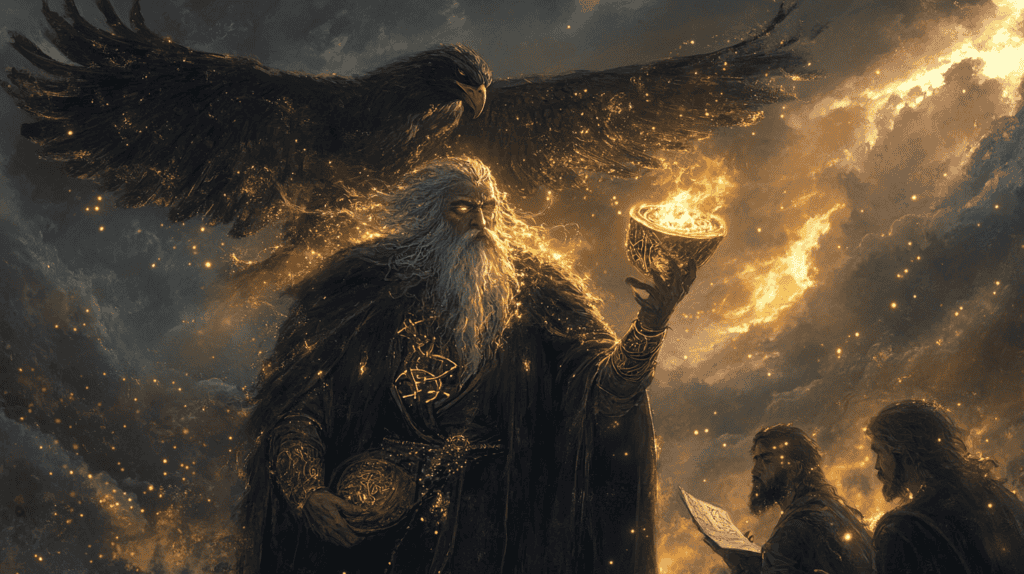
The Legacy of the Allfather
Odin remains one of the most enigmatic figures in world mythology. He is a god of contradictions – wise yet deceitful, creative yet destructive, a seeker of peace preparing endlessly for war. In his complexity, we see reflected the multifaceted nature of human existence, with all its triumphs and tragedies.
As we contemplate Odin, we are reminded of the words attributed to him in the Hávamál, the ancient Norse poem:
“Cattle die, kinsmen die,
the self must also die;
but glory never dies,
for the man who is able to achieve it.”
In these lines, we find the essence of Odin’s philosophy – a recognition of the transient nature of life, coupled with an unquenchable desire to transcend mortality through deeds of lasting significance.
